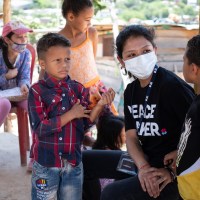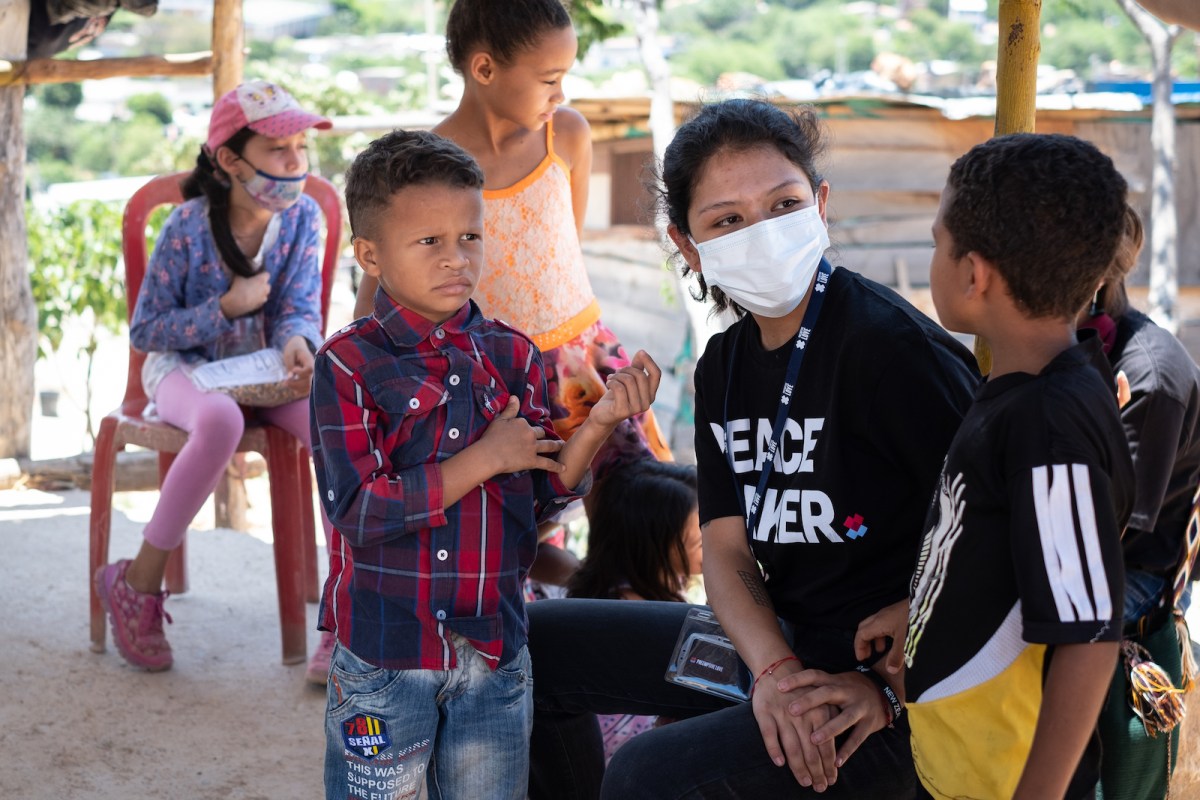Upcoming elections in Colombia on May 29th have the potential to spark hope or stoke violence across the country. The Preemptive Love community has been working in Colombia since 2020, and this week we’re bringing stories from the field, and a look at the political landscape that impacts Colombians and Venezuelan migrants alike.
Venezuelan Migration
Migration from Venezuela to Colombia has happened since 1995, but it reached its peak in 2017 and 2018 when more than a million Venezuelans migrated to Colombia. The Venezuelan population in Colombia has increased from 23,000 in the 1990s to 1.8 million in 2021.
Migration from Venezuela to Colombia made sense: it is the neighboring country, had a more stable economy, a shared language, and a similar culture. However, even before the COVID-19 pandemic, Colombia was having trouble generating the proper conditions for migrants given the very high number of migrants entering the country in a short period of time. In fact, the European Union and the United States provided Colombia with over $50 million dollars to address the migration crisis.
In an effort to control the migration crisis, the Colombian government put into place different legal mechanisms to regulate Venezuelan migrants, the latest being the Temporary Protection Statute (ETP), which seeks to provide 1.8 million irregular Venezuelan migrants the legal status needed to stay and work in Colombia for up to 10 years. By the end of 2021, there were already 1.6 million “pre-registrations” to obtain the ETP, which shows that many Venezuelan migrants intend to stay in Colombia.
Although having legal status would likely address a significant barrier Venezuelan migrants face when looking for a job, the economic situation of the country is now very fragile and it has been increasingly difficult for migrants to find employment opportunities and settle down in Colombia. In 2021, more than 65,000 migrants returned to Venezuela through humanitarian corridors due to the measures and effects of the COVID-19 pandemic. The difficult economic situation has also contributed to an increase in xenophobia present in Colombia and in the division between the two countries.
Armed Conflict and Peace Agreement
Colombia has a long history of conflict and violence. The country has been in armed conflict since the 1960s, which involves the state and multiple illegally-armed actors, like guerrilla and paramilitary groups. The conflict has left almost 300,000 fatalities and millions of internally displaced people. In 2016, a historic Peace Agreement was signed with FARC (Fuerzas Armadas Revolucionarias de Colombia, in Spanish; also known as The Revolutionary Armed Forces of Colombia, or People’s Army in English) guerilla group to put a stop to the conflict.
On paper, this peace agreement addressed the very complex dimensions of the armed conflict. However, in practice, the peace agreement requires a very strong investment from the government and other actors. This hasn’t happened and additionally, the Peace Agreement now has very strong opposition, so progress since 2016 has been very slow.
Because of this, other armed groups have started to take control of the areas that the FARC used to control. Some ex-FARC members have abandoned the process and the violence in the country has started to rise significantly. In 2021, more than 168 environmental and social leaders and 48 ex-FARC members who signed the Peace Agreement were killed. There has also been an increase in massacres, internal displacements, and general violence throughout the country.
COVID-19 Crisis
Just like every other county in the world, the COVID-19 pandemic has had a devastating impact on Colombia. Colombia is a middle-income country that in recent years had steadily decreased poverty levels. Unfortunately, the pandemic has led to an increase in poverty levels nationwide of around 7%, which means an additional 3.6 million people are now living in poverty. The economic situation continues to worsen, with the Colombian Peso being the most devalued currency in the region and one of the most devalued currencies in the world in 2021, and some analysis suggests that Colombia will have its first recession in the 21st century.
In cities where the Preemptive Love community is responding to the need, we are already seeing the population affected. Some settlements–mostly inhabited by Venezuelan migrants–are now receiving economically-displaced Colombian nationals that have lost their job and have had to leave their homes.
Peacemaking and Preemptive Love in Colombia
Given this complex context, Preemptive Love started working in Colombia in 2020 to join the effort to stop the spread of violence, beginning with the difficult situation faced by our Venezuelan migrant friends in the border cities.
After listening to their needs, hopes, and dreams we know our friends struggle to find water, food, and medicine. We’ve begun designing projects to meet these urgent needs.
We believe that communities in Colombia can live in peace. We have seen it over and over, even in the midst of a devastating conflict. We are here to design and implement responses that change how we listen and talk to one another, and contribute to the strengthening of relationships between individuals and communities. While we address the urgent needs of our friends, we are compelled to make the time to build and rebuild the bonds between people and between communities, so that we can stop the spread of violence.


